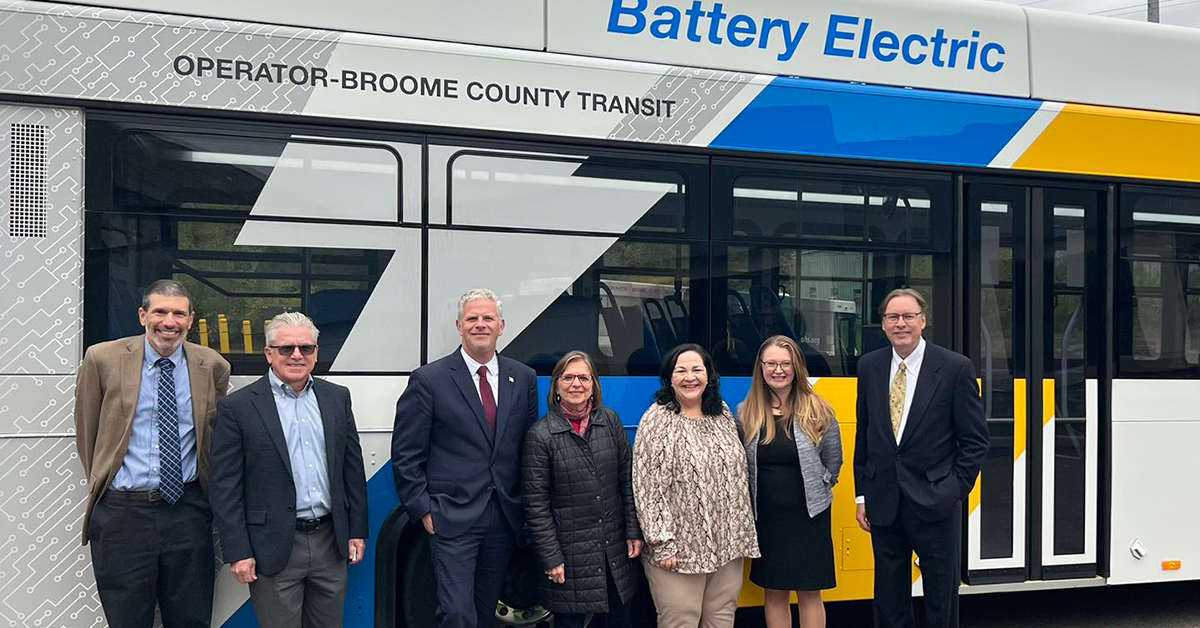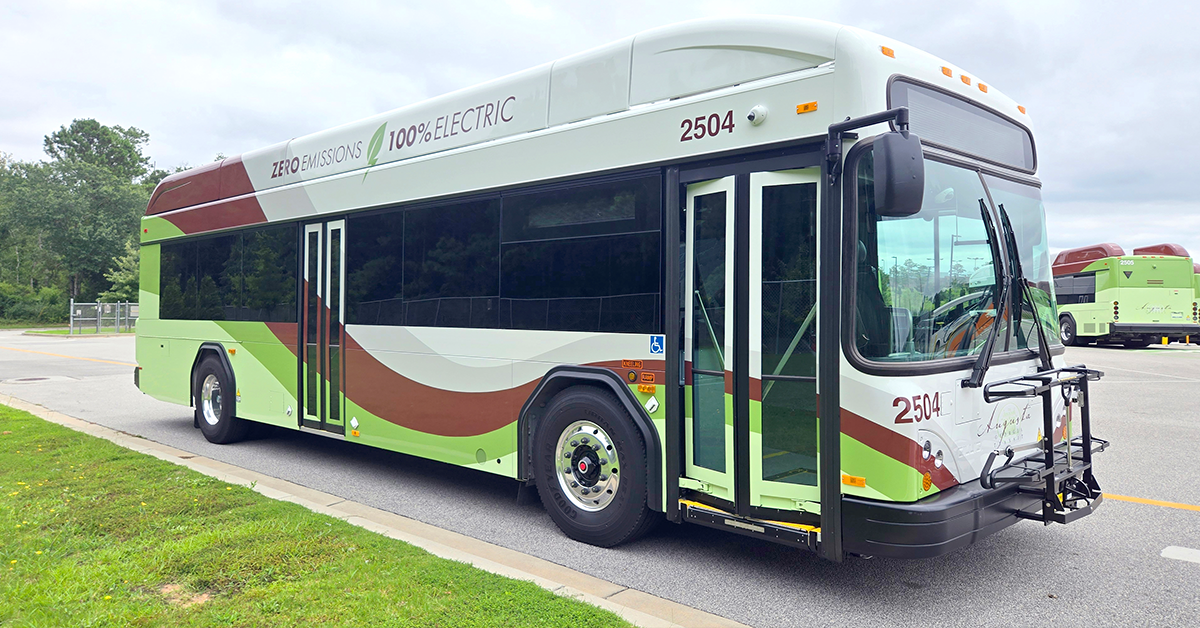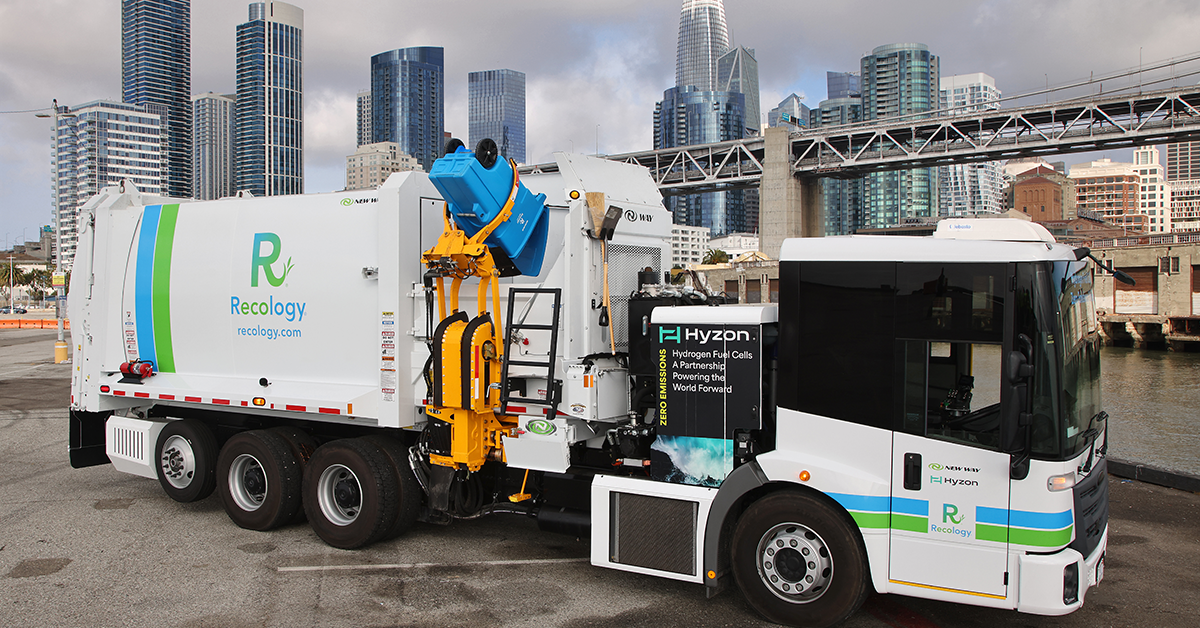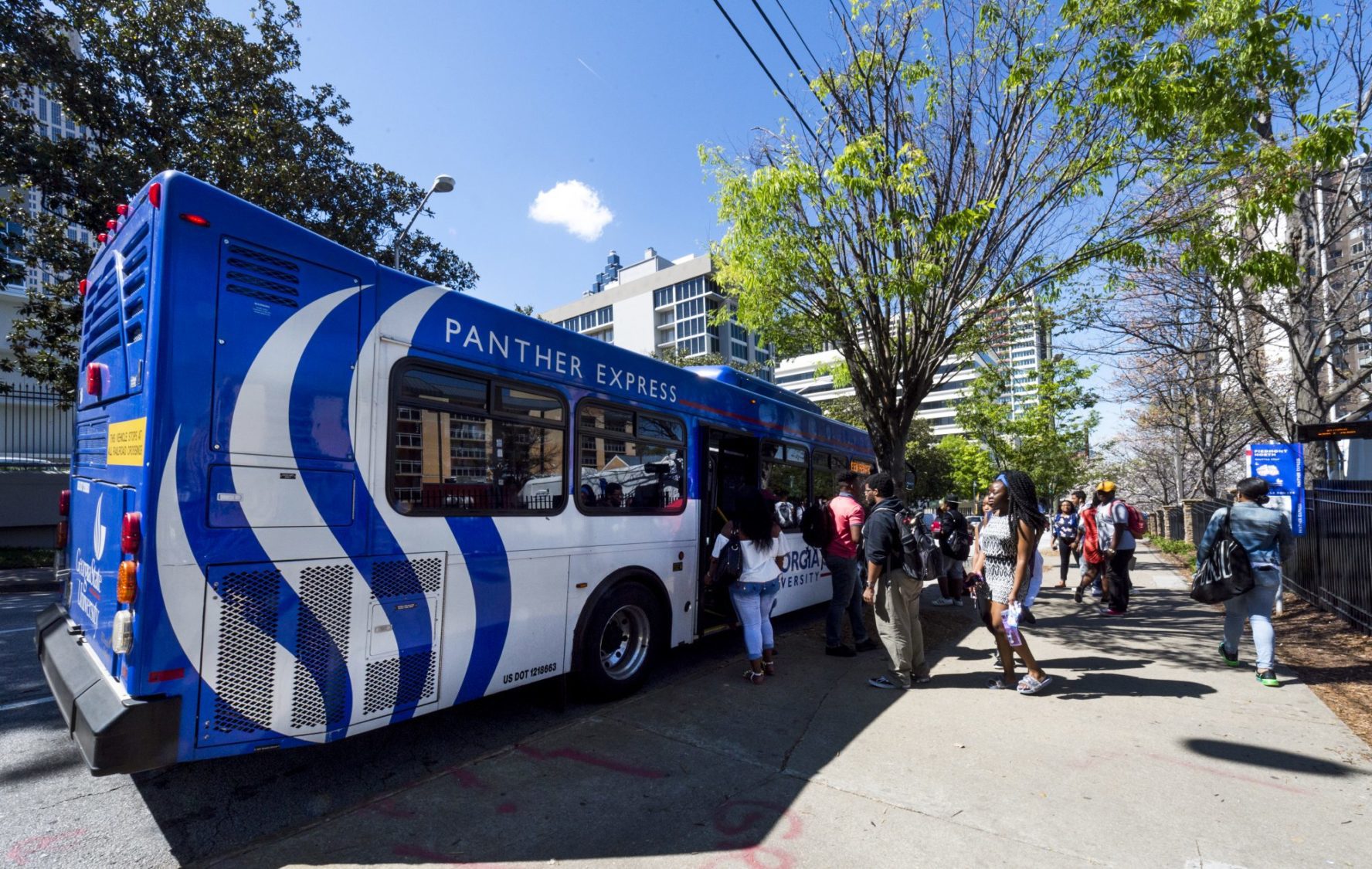
Hydrogen Fuel Cell Bus Demonstration Project Launched in Alabama
October 16, 2008 -- A research team led by the University of Alabama at Birmingham (UAB) and coordinated by the Center for Transportation and the Environment (CTE) has begun a project to design, manufacture, demonstrate, and evaluate a hydrogen fuel cell transit bus that will be operated by the Birmingham-Jefferson County Transit Authority (BJCTA) in revenue service on the UAB campus and in metropolitan Birmingham beginning in 2009. The 30-foot vehicle will utilize a hybrid powertrain that includes two proton exchange membrane (PEM) fuel cell power modules fueled by hydrogen, a hybrid-electric direct drive propulsion system, and nickel metal hydride batteries for energy storage. The project is being supported in part by the Federal Transit Administration with funds secured by Senator Richard Shelby and will conclude in early 2011. "As our country works to end its dependence on foreign oil, research into alternative fuels becomes more critical," said Shelby. "This fuel cell bus project will demonstrate hydrogen's effectiveness as a fuel source. I am proud that this groundbreaking research is taking place in Alabama."
"We are very pleased and excited to begin this initiative, which will make a significant contribution toward the use of transit bus technologies that are safer, less harmful to the environment, and less dependent upon fossil fuels," said Dr. Linda Lucas, UAB's Dean of Engineering. "This vehicle will also demonstrate the resources and capacities of a high tech industrial sector that is beginning to take root and grow here in the South," added Dan Raudebaugh, CTE's executive director. In addition to UAB, BJCTA, and CTE, supporting organizations include EVAmerica (bus design), Embedded Power Controls, Inc. (vehicle integration), Hydrogenics Corporation (fuel cells), Fab Industries (hydrogen storage tanks), and Auburn University (vehicle testing).Initial performance and operational data will be collected while operating the vehicle on the National Center for Asphalt Technology's (NCAT) 1.7- mile oval test track located at Auburn University in Opelika, Alabama. Following this controlled testing, the team will develop and evaluate operations, performance, and maintenance requirements in the public demonstration environment. BJCTA will coordinate closely with UAB to test and evaluate the fuel cell bus on a variety of routes.
The UAB team will be led by Dr. F. H. Fouad, Chair and Professor of Civil, Construction, and Environmental Engineering and Associate Director of the University Transportation Center for Alabama. Assisting Dr. Fouad will be members of the UAB faculty, including Dr. Jay Goldman, Dr. Robert Peters, Dr. Virginia Sisiopiku, and Mr. Andrew Sullivan, all with extensive experience in vehicle simulation, testing, infrastructure development, energy storage, transit planning, and evaluation. UAB will also provide public education and outreach through its Environmental Awareness Research Technology and Health (EARTH) Center.
The Center for Transportation and the Environment (CTE) Founded in 1993, CTE is a member-based nonprofit organization that develops and demonstrates advancements in transportation technologies, vehicles, and fuels that reduce pollution and fossil fuel dependency. In partnership with federal, state, and local shareholders in both the public and private sectors, CTE has managed a portfolio of more than $100 million in cost-shared projects involving over 450 organizations. CTE's Southern Hydrogen and Fuel Cell Coalition (SHFCC) initiates projects like the UAB fuel cell bus demonstration to strengthen and leverage regional resources in response to a global market for hydrogen and fuel cell technologies.
The Birmingham-Jefferson County Transit Authority (BJCTA)BJCTA is the largest public transportation system in the State of Alabama, operating a total of 109 transit buses in regular revenue service. BJCTA has a proven commitment to deploying alternative fuel vehicles and has already converted nearly half of its fleet to compressed natural gas (CNG) buses.EVAmerica, LLCBased out of Chattanooga, Tennessee, EVAmerica will be responsible for building the 30-foot Low-Floor Ecobus for this project. The bus will be manufactured at EVAmerica's facilities in Ringold, Georgia. EVAmerica's chief vehicle designer, Bob Davis, largely known as the father of the electric vehicle industry, has developed his latest bus design for EVAmerica around the Ecobus platform, which is a purpose built for advanced technology applications, including fuel cells.
EVAmerica will be working with several subcontractors, most notably Embedded Power Controls, Inc. out of Salem, Virginia, and and Fab Industries out of Anniston, Alabama. Embedded Power will be responsible for the integration of the propulsion system onto a 30-foot Low-Floor Ecobus manufactured by EVAmerica. Embedded Power will utilize the experience of Richard Boothe, a former GE engineer who has developed and integrated a number of hybridelectric propulsion systems on vehicles deployed throughout the world. Since 1996, Fab Industries has delivered over 4,000 alternative fuel storage systems for heavy duty vehicles throughout the U.S., Canada, Europe, and Mexico. They will be manufacturing hydrogen storage tanks for the vehicle in Anniston.
Hydrogenics CorporationHydrogenics is a leading global developer of clean energy solutions, advancing the "hydrogen economy" by commercializing hydrogen and fuel cell products. The Company has gained recognition from key customers for developing innovative solutions through solid hands-on competency and comprehensive system integration knowledge and skills. Based in Mississauga (Toronto), Ontario, Canada, Hydrogenics has over 170 employees located in Canada, the United States, Germany, Belgium, Russia, , and China.
The National Center for Asphalt Technology (NCAT)NCAT was created in 1986 through an agreement between the National Asphalt Pavement Association's (NAPA) Education Foundation and Auburn University. NCAT will be responsible for initial vehicle testing at its test facility in Opelika, Alabama.





